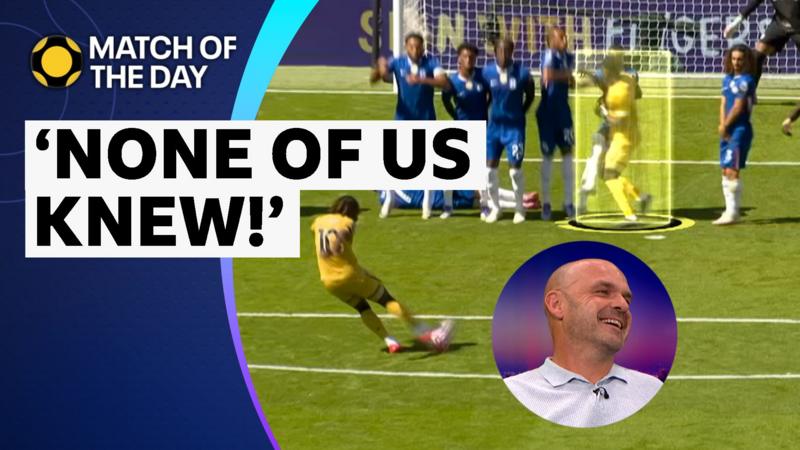Controversial Rule Blocks Eze's Free-Kick - Inside Analysis




In a recent revelation that has sparked much debate and scrutiny amongst football fans and professionals alike, former England goalkeeper Joe Hart, while speaking on Match of the Day, delved into why Eberechi Eze's spectacular free-kick against Chelsea was ruled out. The disallowing of what appeared to be a perfect set-piece has turned into a significant talking point, casting a spotlight on one of football's lesser-known rules.
Eberechi Eze, who has been a revelation for Crystal Palace since his transfer from Queens Park Rangers, seemed to have added another spectacular goal to his collection with a fine free-kick that curled into the Chelsea net. However, the goal was not to be. Instantly, confusion and frustration erupted from both sides, with players and fans alike unsure of why the referee had disallowed the goal.
Joe Hart explained that the goal was negated because of a violation concerning the minimum distance that attacking players must maintain from the defensive wall during a free-kick. According to the Laws of the Game, there is a stipulation that during a free-kick, all attacking players must be at least one meter away from the wall formed by the defending team. This rule was introduced by the International Football Association Board (IFAB) to tackle time-wasting and decrease the potential for flare-ups between players in the wall.
Eze’s disallowed goal serves as a perfect example of this rule in action. Replay footage reviewed during the Match of the Day segment showed that at the moment the free-kick was taken, Eze was indeed within one meter of the defensive wall set up by Chelsea. While seemingly insignificant in the moment, this infraction led to the referee's decision to disallow the goal, adhering strictly to the established guidelines.
This incident brings to the forefront a rule that many fans and possibly even players might not have been fully aware of or paid much attention to. It’s a relatively new change that came into effect in June 2019, part of a package of adjustments made by IFAB aimed at increasing fairness and decreasing unsportsmanlike conduct during matches.
The ruling to disallow Eze's goal despite his technical skill in executing the free-kick might serve as a turning point in how teams approach such set pieces. It stresses an increased need for awareness from players about their positioning and actions during these critical moments of play.
This particular scenario also sparks a broader discussion about whether or not this rule serves the spirit of the game. Purists and fans who revel in the creative and spontaneous elements of football might argue that such regulations overly penalize skill and flair, potentially stifling the dynamism of free-kicks. Conversely, proponents of the rule might argue that these regulations are necessary to maintain discipline and order during set pieces, ensuring that all players adhere to a set standard that promotes fairness.
Moving forward, it’s essential for teams and coaches to incorporate this rule into their strategic preparations and player briefings to prevent such disappointments. A better understanding and adherence to this regulation can not only prevent potential goals from being disallowed but also refine a team's approach to taking free-kicks.
As for fans, this incident serves as a clarifying moment, shedding light on one of the more nuanced aspects of football law. It's these intricacies that add layers to the game, making football not just a test of physical prowess and skill but also of knowledge and strategy. In this continuous evolution of rules, the essence of football adapates, ensuring it remains engaging and fair for the generations to come. The disallowed goal, frustrating though it may be, is a learning opportunity for all involved in the game — from the players on the pitch to the fans in the stands.